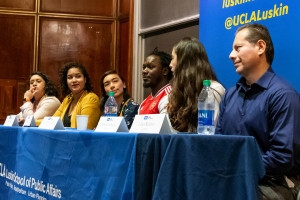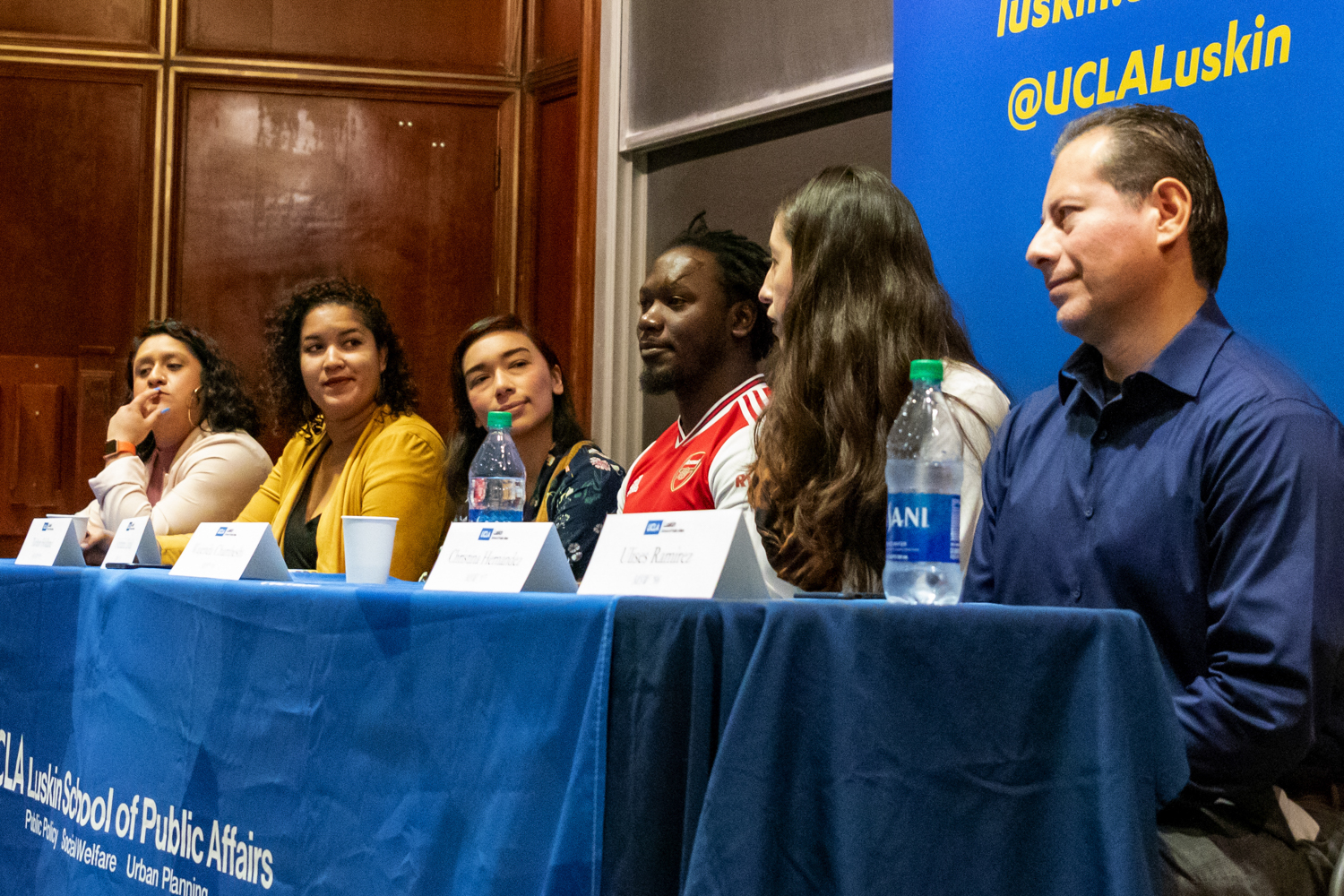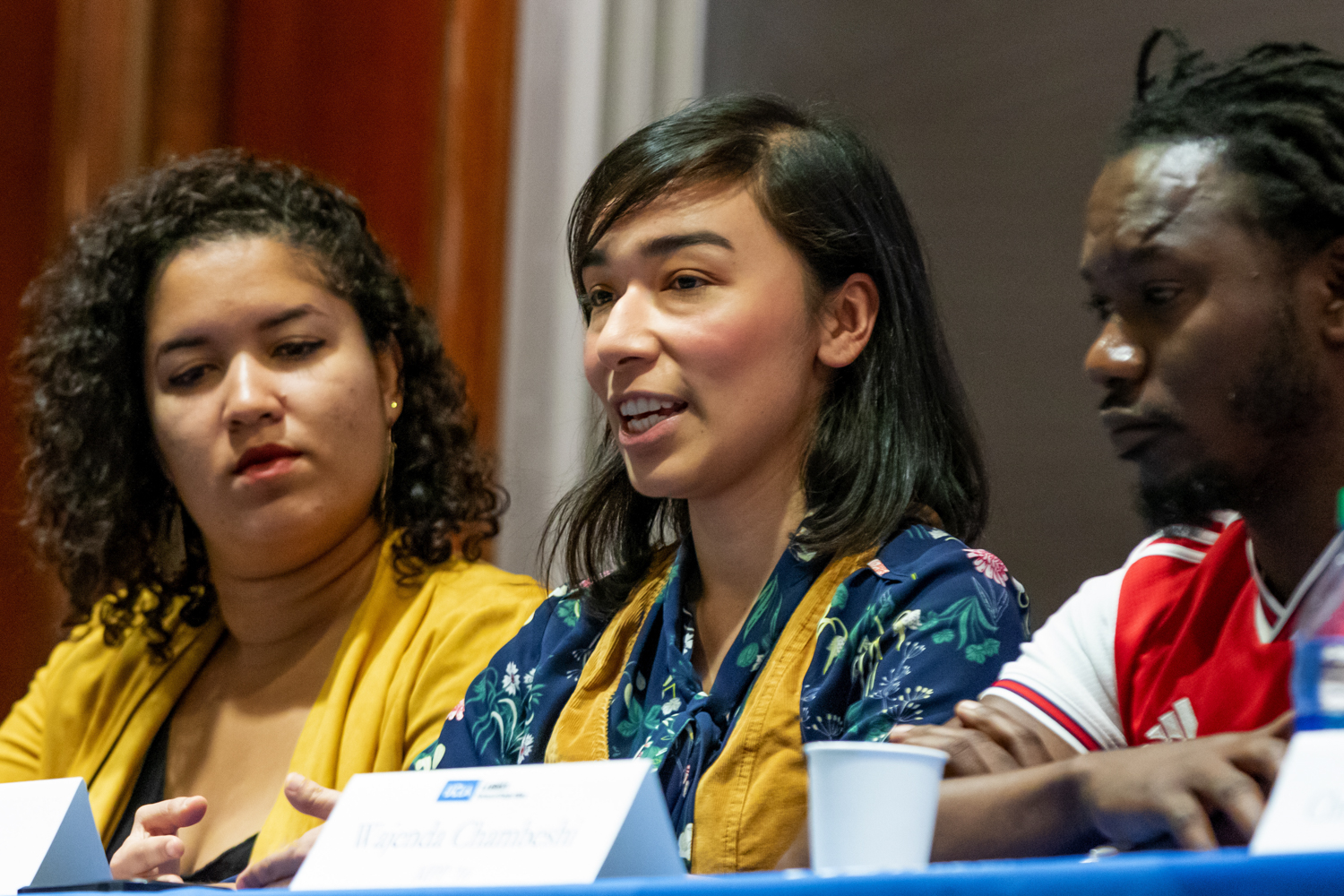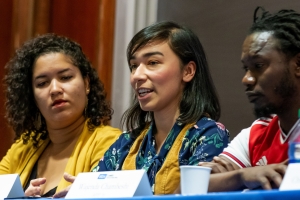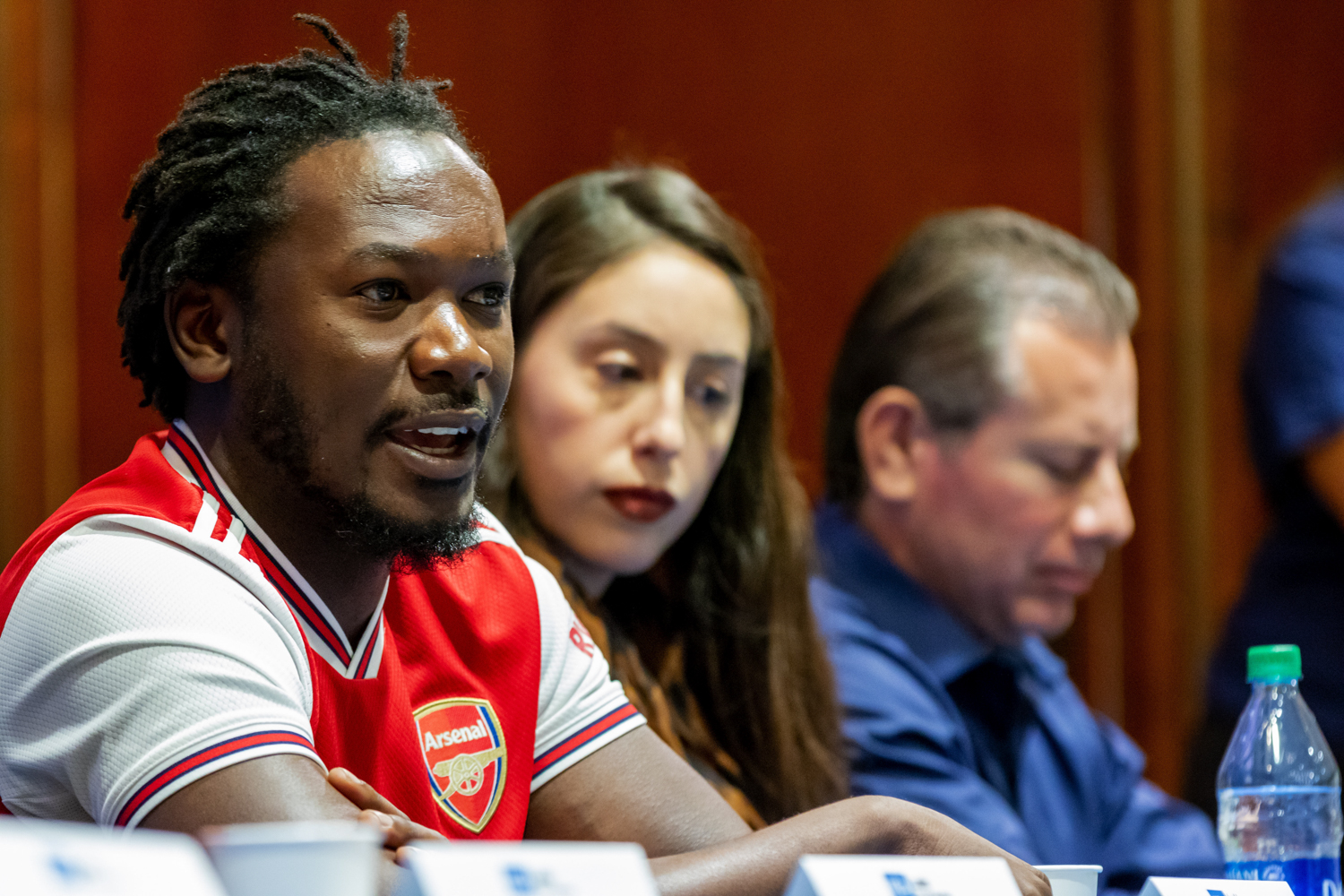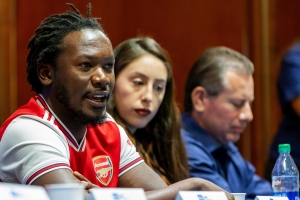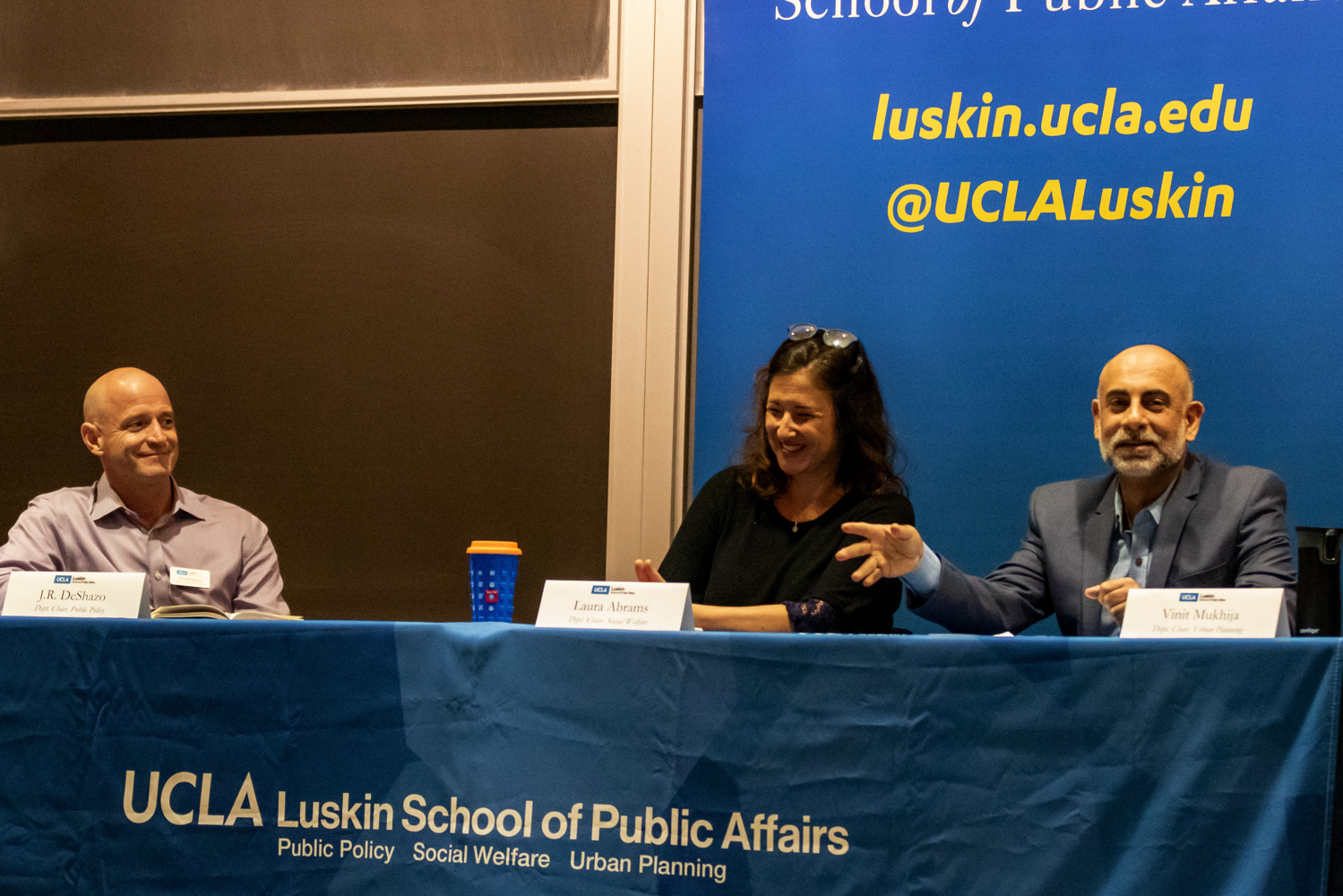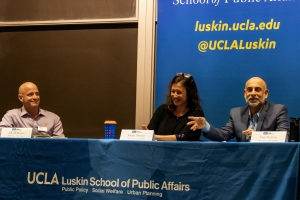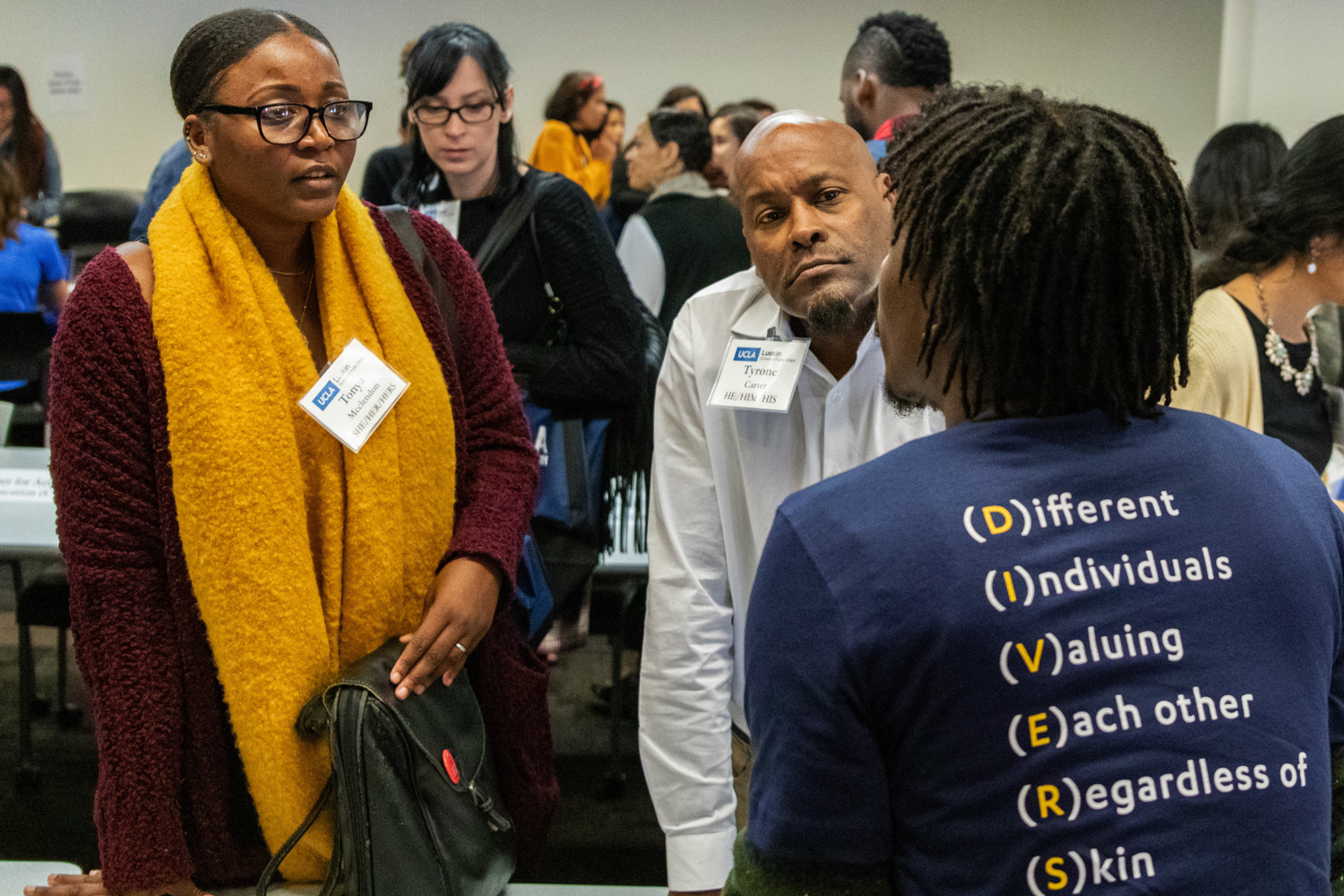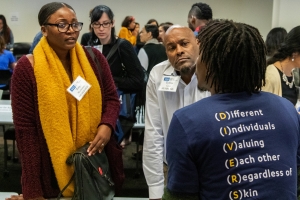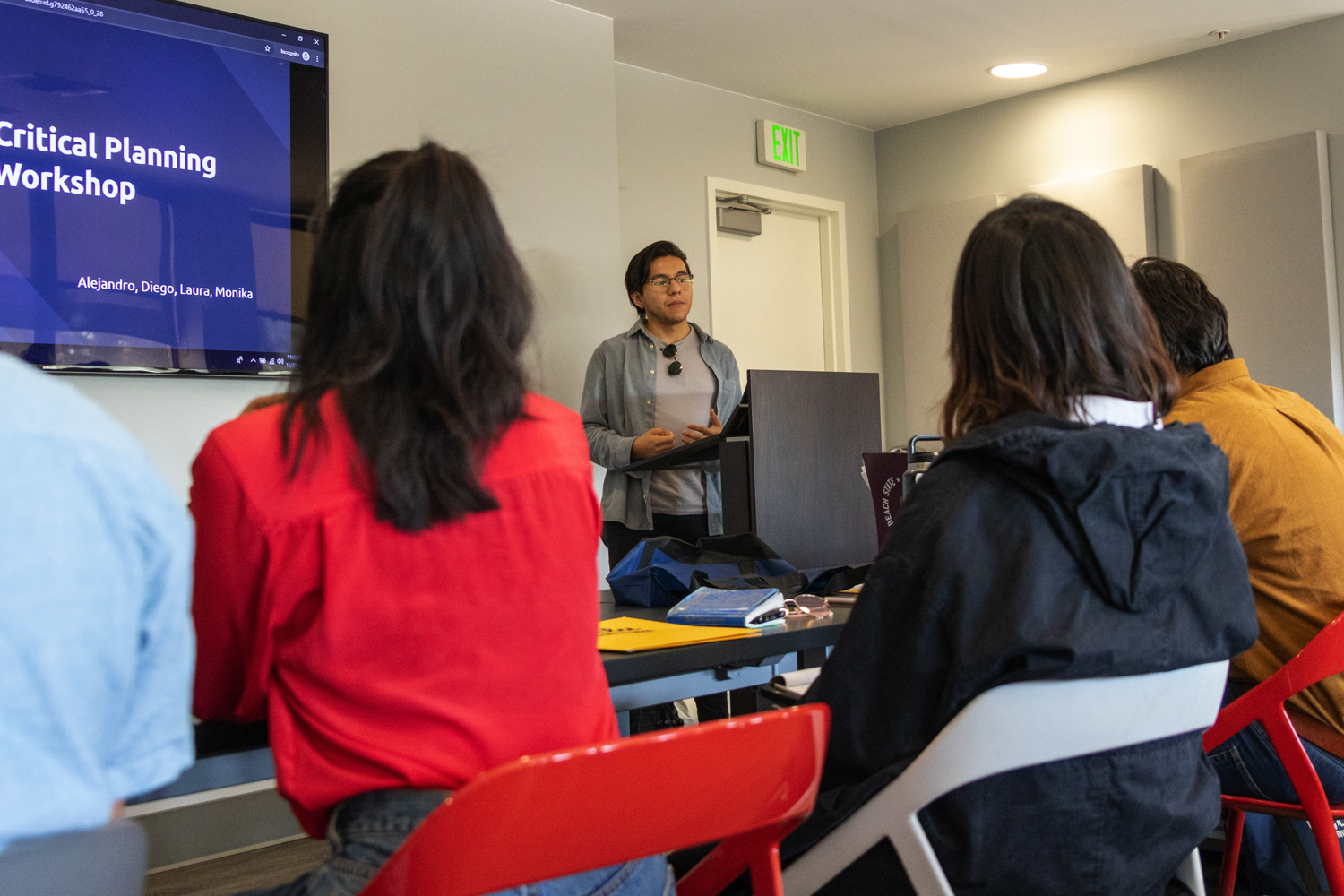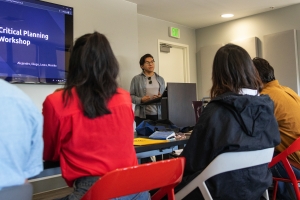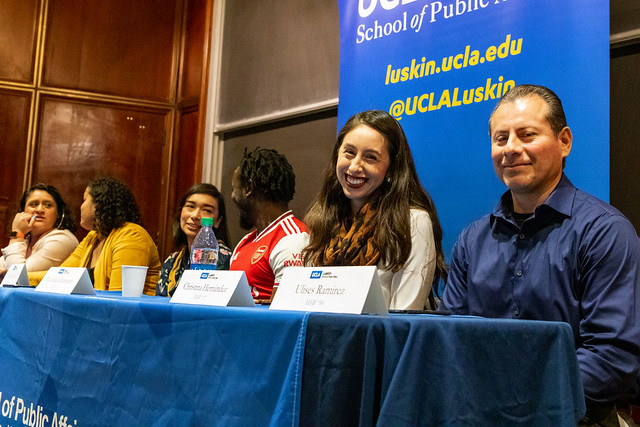UCLA Luskin Faculty Win Prestigious Transportation Award for 3rd Time Co-winner Martin Wachs receives the honor from the Transportation Research Board for a second time — four decades apart
By Lena Rogow
Professor Evelyn Blumenberg of Urban Planning and colleagues who include Professor Emeritus Martin Wachs have won the 2019 Pyke Johnson Award from the Transportation Research Board (TRB) for a recent paper about the mobility needs of aging adults, marking the third time someone from UCLA Luskin has won the prize since its inception.
Wachs has been studying transportation and aging for decades and won the same award more than 40 years ago, in 1976.
The award-winning paper, “Physical Accessibility and Employment Among Older Adults in California,” explores the relationship between car ownership, transit accessibility and older adults’ employment status. The paper found that adults age 60 and older are able to stay in the workforce longer when they have access to a car or to public transit — if they live in a dense urban area.
Blumenberg MA UP ’90, Ph.D. ’95 said that she and Wachs decided to collaborate on the winning paper after realizing they had not previously worked together on a research paper.
“This topic seemed to perfectly align our respective areas of research,” said Blumenberg whose work examines the effects of urban structure — the spatial location of residents, employment and services — on economic outcomes of low-income workers.
“I also knew that it was essential for us to shed light on this topic together,” she said. “I think we’ve been able to showcase an important transportation need to serve an aging population. I’m thrilled that TRB shares our opinion about the importance of this work and I’m honored to be included with a long list of former distinguished scholars who have also received this award.”
In addition to Blumenberg and Wachs, the paper’s other authors are Andrew Schouten Ph.D. ’19, who is currently a postdoctoral fellow at the UCLA Institute of Transportation Studies, and Miriam Pinksi, a doctoral student in urban planning.
Pinski said the paper’s focus on low-income adults and their particular access to jobs was notable. Many older adults continue to rely on employment as their main source of income, in part because pensions are becoming rarer in the United States.
“Without transportation, many of these adults would have no way to sustain their lives. I hope our paper has provided more insight into yet another reason why maintaining a functioning transportation infrastructure is critical for many populations,” Pinski said.
“For TRB to recognize our work with this prestigious award is an honor,” Schouten said. “I hope this will bring more attention to important issues that lie at the intersection of transportation, employment and aging.”
ABOUT THE AWARD
TRB established the Pyke Johnson Award in 1971 to give annual recognition to an outstanding paper published in the field of transportation systems planning and administration. It honors the 23rd chairman of the Highway Research Board, who was influential in TRB from its inception.
UCLA has won three times since the first award was given in 1971. Brian Taylor Ph.D. ’92, professor of urban planning and public policy, won in 2000. Wachs is one of three two-time winners and the only person to repeat as winner more than five years apart. The gap in his case was 43 years. In each instance, the research involved faculty and doctoral students.
When Wachs first heard the news, he burst out laughing, recalling how much his life has changed since he first won. His 1976 paper also dealt with mobility and older adults.
“At that time, I was simply writing about the topic from an academic perspective,” Wachs said. “And now my work is coming true in my own personal life.”
“What’s different about this paper is I’m honored to now collaborate with young people,” he said. “This paper benefited from the combination of their sharp methodological skills with my longstanding focus on this topic. It has been an enormous pleasure collaborating with them, and I’m proud to share this honor with them.”
The presentation took place Jan. 13 at TRB’s annual meeting in Washington, D.C.
